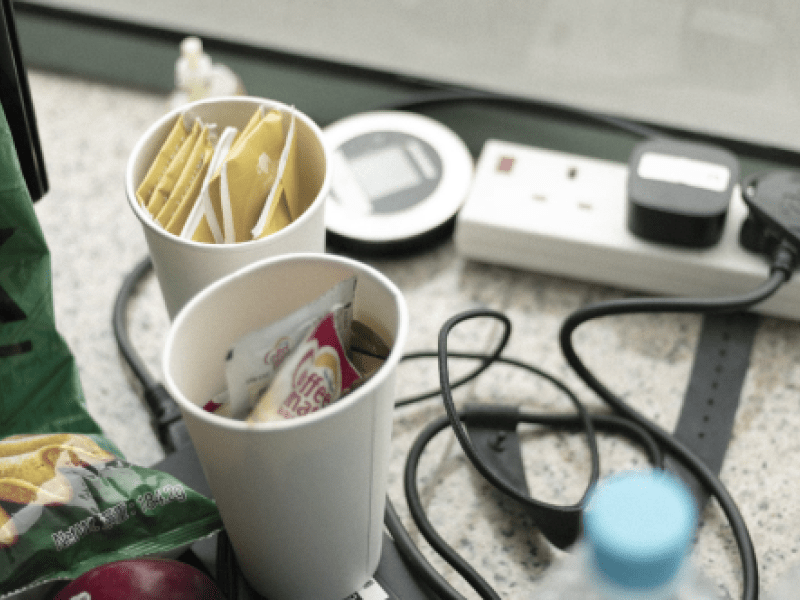Electrical safety
Electrical safety in your home
One Manchester has a legal responsibility to ensure that the wiring in your home, as well as any equipment we provide for your use, is safe.
We carry out periodic checks of the electrical wiring in your home and test portable appliances in communal areas to ensure everything is working as it should.
However, you are responsible for any electrical equipment you’ve brought into your home and how you use it. Faulty appliances can pose a serious fire risk, so if any of your items—like your fridge or washing machine—start making unusual noises or don’t work properly, please don’t ignore the problem.

Your Electrical Safety Responsibilities
Every five years, we’ll need access to your home to complete an electrical safety check. Allowing us access is essential for your safety and is part of your tenancy agreement. Refusing access could lead to legal action, which may put your tenancy at risk.
If you hire someone to carry out electrical work in your home, ensure they are a registered electrician with one of the government-approved schemes. You should also inform us of any electrical work you’ve had done, as it may require an additional safety inspection.
Electrical Safety tips
To reduce the risk of fire or injury caused by electrical faults, please follow these safety tips:
- Only purchase electrical appliances and chargers from reputable retailers, and look for the British Kitemark or CE safety mark
- Avoid overloading plug sockets or adaptors
- Regularly check sockets for burn marks or overheating, and contact us if you notice any issues
- Keep electric heaters away from curtains and furniture, and never dry clothes on them or block their air vents
- Don’t run cables under carpets or rugs, as damage could go unnoticed
- Inspect cables and wires for fraying or wear, ensure they are securely fastened to plugs, and check sockets for scorch marks
- Switch off appliances at the socket when not in use, especially before going to bed or leaving the house, unless they’re designed to stay on (like a fridge freezer)
- Keep appliances clean and in good condition. Look out for fuses that blow frequently, circuit breakers that trip, or flickering lights, and address these issues promptly
- Never use electrical appliances near water, and avoid touching them with wet hands
- In the event of an electrical fire, do not use water. Switch off the power if it’s safe to do so, unplug the appliance, and call the fire brigade.
For more tips and detailed information, visit the Electrical Safety First website at www.electricalsafetyfirst.org.uk.

